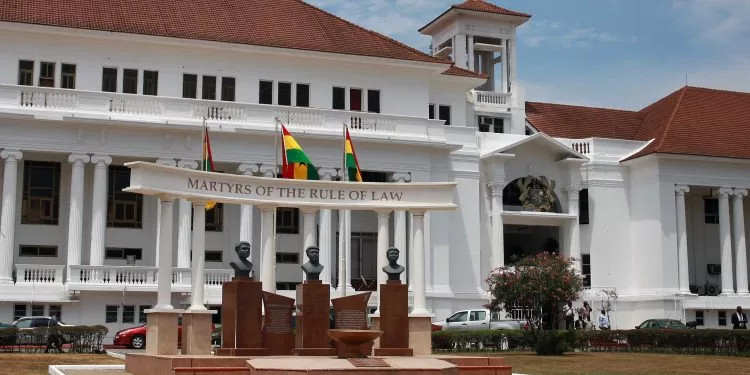IMANI Files New Lawsuit Challenging Security Heads Appointment, Withdraws Previous Case

- IMANI Ghana files new lawsuit over security agency appointments.
- Supreme Court strikes out original case after plaintiffs withdraw it.
- New suit challenges President's power to terminate appointments without misconduct.
- Plaintiffs argue Constitution protects security officials' rights.
Lawyers for IMANI Ghana and security expert Kwasi Aning have filed a new lawsuit challenging the appointment of heads of security agencies by the executive, withdrawing an earlier suit filed at the Supreme Court.
The Supreme Court struck out the old case on Wednesday, June 5, 2024, after the plaintiffs’ lawyers announced their intention to discontinue the matter.
The new suit, filed in association with Prof. Kwesi Aning, seeks a declaration that the President of Ghana lacks the authority to terminate the appointment of heads of security agencies unless there is proven misconduct or misbehavior.
The plaintiffs argue that the President’s power to appoint heads of security agencies is limited by the Constitution, which protects the rights of occupants of these offices. The suit specifically mentions the offices of the Chief Fire Officer, Inspector General of Police, Director General of Prisons Service, and Comptroller General of Immigration Service.
The plaintiffs contend that new governments often compel the termination of these heads without regard for their constitutional rights, sometimes before they reach the statutory retirement age. They cite the example of the former Director-General of the Prisons Service, who was asked to proceed on leave at age 54 and replaced by another appointee.
The plaintiffs seek a consequential order to restrain the President from dismissing or removing these officials unless there is proven misconduct or misbehavior, or upon retirement, resignation, death, or incapacity.
Before striking out the original case, the Chief Justice expressed concern over the publicization and subsequent withdrawal of the matter, describing it as “unacceptable.” The plaintiffs’ counsel explained that the withdrawal was to allow for the case to be refiled in light of new developments.






